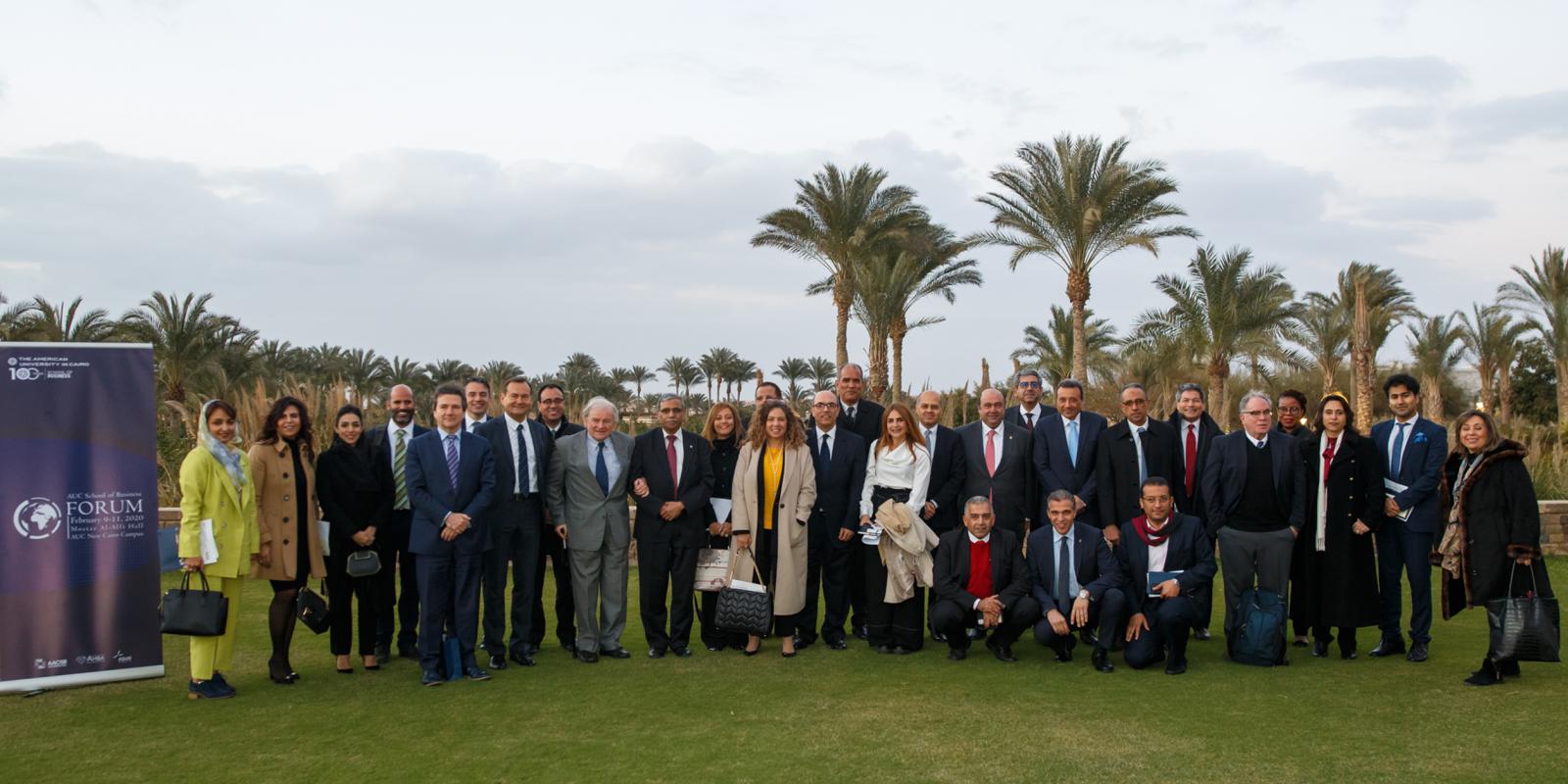
The Future of Business and Management Education
The AUC Business Forum, which took place between February 9-11, brought together a diverse group of renowned and distinguished scholars, practitioners from the business industry, as well as policymakers from Egypt, Africa, the Middle East and other parts of the world, to discuss timely and relevant issues in the world of business education.
Launching the first of the forum’s five roundtables, “The Future of Business and Management Education” was set in motion by Sherif Kamel, dean, AUC School of Business; Howard Thomas, senior advisor to the Chairman, European Foundation for Management Development (EFMD) and the Ahmass Fakahany distinguished professor of Global Leadership, Questrom School of Business, Boston University; Dan LeClair, CEO, Global Business School Network, USA; and Enase Okonedo, dean, Lagos School of Business, Pan-Atlantic University, Nigeria.
The roundtable brought about insights revolving around three main questions, how did we, as business schools, get where we are now; what do we do now; and how do we change moving forward. Exploring the impact of the world of disruption on business schools, the main basis on which business schools can navigate this world was agreed to be “embracing the disruption, even if a little”, in order to better serve their communities.
However, a guide on how to accomplish that does not exist, given that not a single country or even a school in a given country is identical to the other. While the issues in the market may be the same, handling these issues differs from one market to another, even if we’re discussing the MENA region in particular. The one-size-fits-all solution doesn’t exist; the key is to understand the school, the culture, and the context.
Meanwhile, a common theme that was conversed about during the roundtable was inclusivity, stressing that responsible management is now called for more than ever and that the issue is no longer about profitability and maximizing revenues solely. It’s rather about the impact on society as a whole as well as the business, shareholders, and stakeholders.
Recommendations were directed at integrating responsible management in experiential learning methods, which should not only be associated with companies, but also with aspects of society that could genuinely make a difference.
Moving forward, a general consensus was reached regarding the necessity of attempting to define business school curriculums and what exactly needs to be done to stay relevant amidst the disruption taking place, particularly that curriculums are now available on the Internet through different, easily accessible platforms. The focus, accordingly, needs to be on how the curriculum is being delivered, and why it is being delivered, with particular emphasis on skills instead of concepts since the context of business education is changing so much, and so fast.
Find the full roundtable discussion here: https://www.youtube.com/watch?v=oE_e6VRlELU
